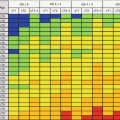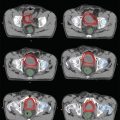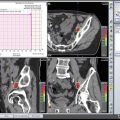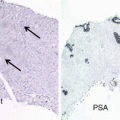Androgen inhibitors
Abiraterone
FDA approval
For metastatic CRPC before chemotherapy
For metastatic CRPC following docetaxel
Orteronel (TAK-700)
Phase III
Maintenance therapy in patients with mCRPC previously treated with novel hormonal agents (NCT02053311)
Orteronel Maintenance therapy in patients with metastatic castration-resistant prostate cancer and nonprogressive disease after first-line docetaxel therapy (NCT01707966)
Study comparing orteronel plus prednisone in patients with metastatic castration-resistant prostate cancer (NCT01193257)
Study comparing orteronel plus prednisone in patients with chemotherapy-naive metastatic castration-resistant prostate cancer (NCT01193244)
Phase III ADT + TAK-700 versus ADT + bicalutamide for metastatic prostate cancer (NCT01809691)
Hormone therapy, radiation therapy, and steroid 17alpha-monooxygenase TAK-700 in treating patients with high-risk prostate cancer (NCT01546987)
Galeterone
A study of galeterone compared to enzalutamide in men expressing androgen receptor splice variant-7 mRNA (AR-V7) metastatic CRPC (NCT02438007)
ODM-204
Safety and pharmacokinetics of ODM-204 in patients with metastatic castration-resistant prostate cancer (NCT023440179)
Androgen receptor inhibitors
Bicalutamide
FDA approval for metastatic prostate adenocarcinoma
Enzalutamide
For metastatic CRPC following docetaxel
ODM-201
Efficacy and safety study of BAY1841788 (ODM-201 ) in men with high-risk nonmetastatic castration-resistant prostate cancer (ARAMIS) (NCT02200614)
ODM-201 in addition to standard ADT and docetaxel in metastatic castration sensitive prostate cancer (NCT02799602)
ARN 509
A study of apalutamide (ARN-509 ) in men with nonmetastatic castration-resistant prostate cancer (NCT01946204)
A study of apalutamide (JNJ-56021927, ARN-509 ) plus androgen deprivation therapy (ADT) versus ADT in participants with mHSPC (NCT02489318)
An efficacy and safety study of JNJ-56021927 (ARN-509 ) in high-risk prostate cancer subjects receiving primary radiation therapy: ATLAS (NCT02531516)
Galeterone
A study of galeterone compared to enzalutamide in men expressing androgen receptor splice variant-7 mRNA (AR-V7) metastatic CRPC
(NCT02438007)
Up to date, docetaxel, sipuleucel-T , cabazitaxel, abiraterone acetate, enzalutamide, and radium-223 showed overall survival benefit in CRPC patients.
Cabazitaxel is a new-generation and semisynthetic derivative of a natural taxane. It is formerly known as XRP-6258. It is a microtubule inhibitor. It was tested in a phase III trial with 755 men for the treatment of castration-resistant prostate cancer , median survival was 15.1 months for patients receiving cabazitaxel versus 12.7 months for patients receiving mitoxantrone. Cabazitaxel was associated with more grades 3–4 neutropenia than mitoxantrone. Cabazitaxel in combination with prednisone is a treatment option for hormone-refractory prostate cancer following docetaxel-based treatment [1].
Abiraterone acetate blockade CYP17 inhibits androgen synthesis. Abiraterone was tested in patients received first- or second-line chemotherapy in CRPCP (COU-301) [2]. Abiraterone acetate approved for use with prednisone for metastatic castration-resistant prostate cancer following docetaxel. This phase III study demonstrated a statistically significant improvement in OS in patients receiving abiraterone acetate compared with patients who received the placebo (HR = 0.646; 95% CI: 0.543, 0.768; P = 0.0001). The median OS was 14.8 months for patients who received abiraterone acetate compared with 10.9 months OS for patients who received the placebo. An updated OS analysis, conducted after 775 events, demonstrated a median OS of 15.8 months for patients who received abiraterone acetate compared with 11.2 months for patients who received the placebo (HR = 0.740; 95 percent CI: 0.638, 0.859).
Enzalutamide has FDA approval for metastatic CRPC patients. The approval was based on a single randomized placebo-controlled multicenter trial that enrolled 1199 patients with metastatic castration-resistant prostate cancer who had received prior docetaxel. Patients were randomly assigned to receive enzalutamide 160 mg orally once daily (N = 800) or placebo (N = 399).
A statistically significant improvement in OS [HR 0.63 (95% CI: 0.53, 0.75), p < 0.0001, log rank test] was observed in patients in the enzalutamide group compared with patients in the placebo group. The median OS was 18.4 months for patients who received enzalutamide and 13.6 months for patients who received placebo.
Grades 3–4 adverse reactions were reported in 47% of patients treated with enzalutamide and in 53% of those who received placebo. Seizures occurred in 0.9% of patients treated with enzalutamide [3].
Other new-generation drugs targeting the AR are orteronel and ARN-509 , ODM-204 , and galeterone .
Orteronel (TAK-700) is an investigational, nonsteroidal, reversible, selective 17,20-lyase inhibitor. Orteronel was tested in phase III study in patients with metastatic castration-resistant prostate cancer that progressed after docetaxel therapy (ELM-PC 5). In this study, there was no statistically significant improvement in OS with orteronel-prednisone versus placebo-prednisone. Furthermore, the longer rPFS and higher rate of ≥50% PSA decrease suggest that orteronel may have antitumor activity in mCRPC after docetaxel therapy [4].
ARN-509 (apalutamide ) is another nonsteroidal antiandrogen being actively investigated in the nonmetastatic CRPC setting. This compound inhibits binding of androgens to the AR and prevents nuclear translocation and DNA binding of the receptor to androgen response elements. An ongoing phase II trial of ARN-509 that recruited 47 patients between November 2011 and June 2012 is studying this drug in patients with nonmetastatic CRPC. The primary endpoint is PSA response at 12 weeks according to PCWG2 criteria. Inclusion criteria included nonmetastatic CRPC and high risk for disease progression, based on PSA level ≥8 ng/mL within 3 months of enrollment and/or PSA doubling time of ≤10 months. Patients were given 240 mg of ARN-509 per day and had their PSA level checked every 4 weeks and imaging studies every 16 weeks. The median follow-up was 13.4 months. The PSA response rate at both 12 and 24 weeks was 91%, and the median metastasis-free survival has not been reached. AEs in the metastatic CRPC group included grade 3 or higher fatigue back pain, constipation, musculoskeletal pain, and vomiting.
An ongoing phase III trial is randomly assigning men with nonmetastatic CRPC 2:1 to ARN-509 versus placebo (ClinicalTrials.gov identifier: NCT01946204). Participants must have a PSA doubling time of ≤10 months.
Earlier use of AR pathway targeting drugs have been tested in de novo metastatic patients (latitude study-abiraterone). Abiraterone is also testing in de novo metastatic patients in combination with local radiotherapy (PEACE-1).
There are emerging drugs target in CRPC. PARP inhibitors, PI3K/Akt, immune checkpoints, and PD1 and PDL1 inhibitors are intensively studied and some promising results were published.
22.2 PARP Inhibitors
Metastatic, castration-resistant prostate cancer can have genomic aberrations that interfere with DNA repair. Some of these aberrations have been associated with sensitivity to platinum and poly(adenosine diphosphate [ADP]–ribose) polymerase (PARP) inhibitors, suggesting that treatment with a PARP inhibitor may exploit a synthetic lethal interaction. PARP is involved in multiple aspects of DNA repair, and the PARP inhibitor olaparib (Lynparza, AstraZeneca) has recently been studied in mCRPC for with BRCA1/2 mutations. It is known that BRCA-mutant patients is exquisitely sensitive to PARP inhibition [5]. DNA repair defect is 22.7% and DNA repair defects. 12.7% BRCA2 altered including 5.3% germline [6].
TOPARP trial is an open-label, single-arm, two-part adaptive design phase II trial of olaparib in patients with advanced castration-resistant prostate cancer.
The trial aims to evaluate the antitumor activity of olaparib in metastatic castration-resistant prostate cancer, identify molecular signatures of tumor cells in responding and nonresponding patients, and identify predictive biomarkers of olaparib response. In this study overall response rate is 33%; however, response rate is 88% in the patients with DNA repair defect [7].
Stay updated, free articles. Join our Telegram channel

Full access? Get Clinical Tree








